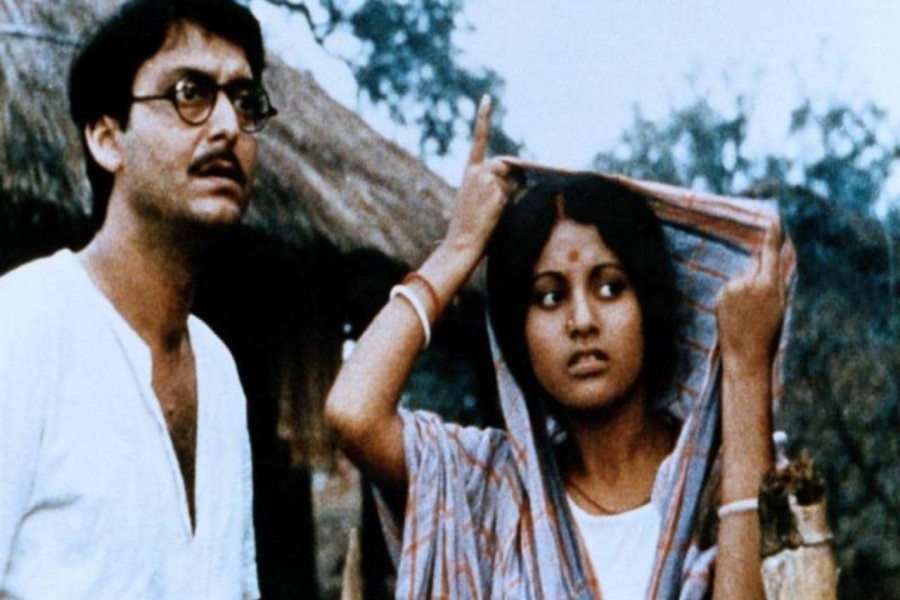
Published :
Updated :

The price hike has been one of the most discussed issues recently. The price of daily necessities is rising fast, and so is the demand for them.
The situation currently is worsening with the Russia-Ukraine war. The picture might not be as bleak as that of World War II, it somehow resembles the situation. In this situation, a great Bengali film can be relevant.
'Ashani Sanket' or 'Distant Thunder' is a movie that reflects the time of WWII, to be precise, 1943 when the British government bought all the rice from the market to send rations for the armies present in the war. This caused a downfall in the supply of rice in the market and thus the great Bengal Famine of 1943 happened.
The director, Satyajit Ray, known for his enormous style of portraying rural lifestyle since his first movie, has adapted the story of this movie from the novel of the same name by Bibhutibhushan Bandopadhyay. Actors like Soumitra Chatterjee, Babita, Sandhya Mukherjee and many more played roles in the movie.
The movie revolves around the fact of the rarity of rice in the market. And this central point leads to some significant consequences, such as lack of self-esteem among people, mass robbery, rape, murder, prostitution, a broken social system, and so on. These consequences can be found as metaphors, montages, verbal expressions, etc. in this movie.
As the first consequence of the price hike of rice, we can see a man called Dinabandhu Bhattacharjee, begging for some rice from the male protagonist of the movie, Gangacharan, while he was returning home.
Though Gangacharan gives him some rice, some days later Dinabandhu again haunts him even to his house for some more rice. And in the ending scene of the movie, Dinabandhu is seen to be coming to Gangacharan’s house with all his family members. This parasitic behaviour shows how the self-esteem of a person breaks during a famine.
Secondly, when Gangacharan goes to the ration shop to buy some rice, he comes to know that the price per kilogram has gone all the way up to 18 rupees. At that moment, some suspicious stranger comes who grabs one sack of rice and flees away. Seeing this, all the other people who were gathering there, started to rob the rest of the sacks. A mass robbery happens, and at the same time, the social system faces a breakdown.
To talk about the breakdown of the social system, the breakdown of casteism is also an important issue, as it was the base of the social system at that time.
When the rarity of rice goes at its highest peak, Gangacharan, despite being an educated Brahmin, decides to seek some rice from some Nibaran Ghosh, who belongs to a lower caste. At that time, this was a question of pride, still, Gangacharan couldn't stop himself.
When rice is out of the market, Gangacharan’s wife, Ananga, along with her friends, goes to the jungle in quest of wild potatoes to feed herself and her husband. At that moment, a stranger tries to rape her in the middle of the jungle.
Other than these, there are references to prostitution when Chhutki, Ananga’s friend, surrenders herself to the scarface named Jadu for some rice, murder when Chhutki kills the rapist, Moti’s death after starving for days, Biswas’ storing excess amount of rice knowing that there is not enough rice in the market and many more things.
In recent times, we have seen how lower and middle-class people are desperately running behind TCB’s trucks for some ration. News of storing food ingredients is coming from different parts of the country.
Is this what Satyajit Ray predicted in his movie? Is it the distant thunder that will eventually break the social system?
Shuvodipbiswasturja1999@gmail.com


 For all latest news, follow The Financial Express Google News channel.
For all latest news, follow The Financial Express Google News channel.